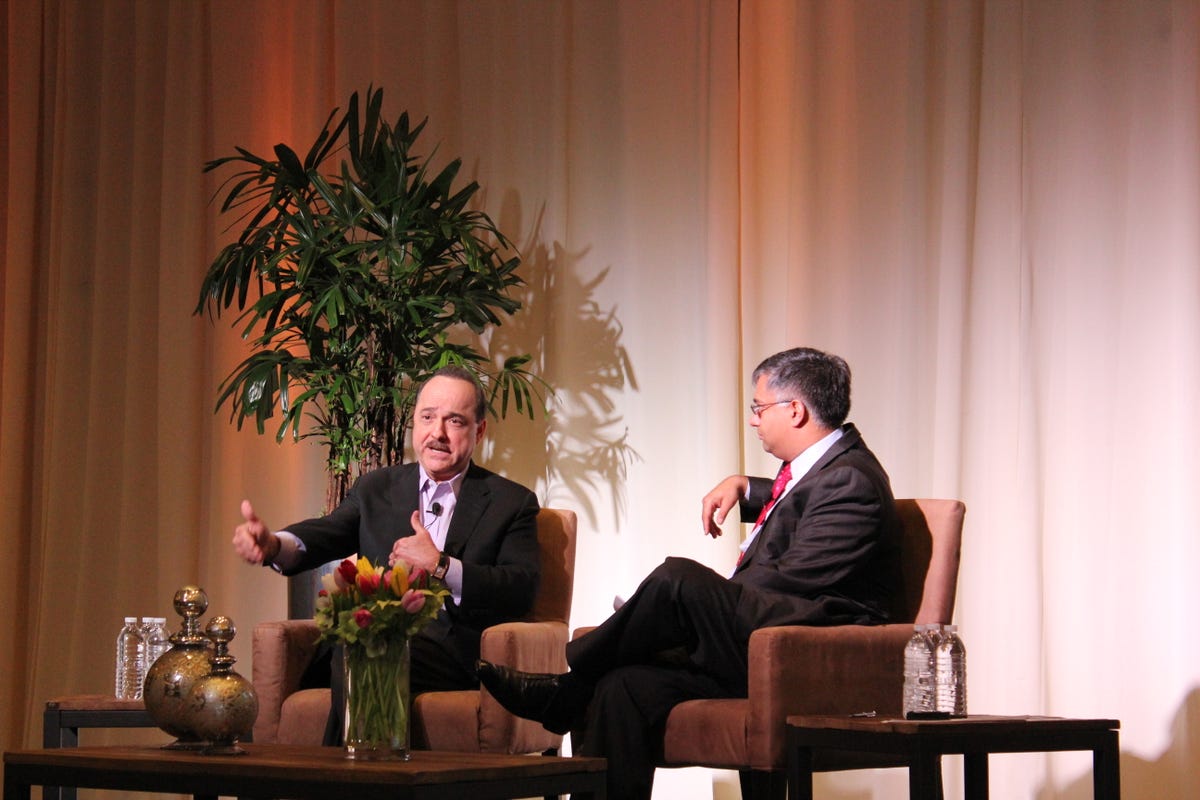
Roger Cheng/CNET
ATLANTA–AT&T Mobility CEO Ralph de la Vega wouldn’t go so far as to call Netflix arrogant.
“I’ve never called them arrogant, but I’ve heard them being called arrogant,” de la Vega said during an investor conference here on Tuesday.
The reference is to AT&T using that term last week to describe Netflix’s call for free interconnection. While de la Vega wouldn’t use such colorful language, he broke down the argument to the need to pay for capacity to deliver streaming video services, which he said was driving exponential traffic growth.
“We have to provide additional capacity,” he said. “The only question is who pays for that addition?”
The options include Netflix, which has reluctantly struck deals to ensure its video services are delivered properly, or everyone — including customers who don’t pay for Netflix, according to de la Vega.
Rutberg analyst Rajeev Chand, who was moderating the discussion, noted that one alternative was to charge customers who require that additional video. But de la Vega insisted that the fees for carrying that traffic should be borne on the back end, and be separate from consumers.
De la Vega also took on Softbank CEO Masayoshi Son’s comments that he wanted to drive a real price war and speed up the service in the US, which he has suggested he could better do by merging Sprint with T-Mobile.
“I think he’s a great entrepreneur,” de la Vega said, before arguing that US customers actually have it pretty good.
He noted that the cost of a megabyte has declined by 93 percent since 2008, and said the price per minute for voice is 3 cents, the lowest rate among developed countries. He said customers in the US talk seven to eight times more than in other places in the world.
On the speed argument, de la Vega noted that AT&T has reached 95 percent of the country with its faster LTE network and reaches more customers with LTE than any in other country.
De la Vega doesn’t think regulators will support a merger between Sprint and T-Mobile, arguing that nothing has changed since the Justice Department squashed its own bid to buy T-Mobile. While some have argued that a merger between the No. 3 and No. 4 players in the nation would be more palatable than a No. 1 or 2 player consolidating its power, de la Vega said the real issue is going from four carriers to three.
“Four isn’t an unreasonable number,” he said. “I think the debate will continue.”
When de la Vega was jokingly asked about the idea of buy WhatsApp for $20 billion (it was acquired by Facebook for $19 billion), he compared the valuation to its 99-cent-a-year annual and quipped, “that’s new math.” He added later that he believes the deal makes sense for Facebook, but wouldn’t have been a fit for AT&T.
One of the big topics at the Rutberg conference is the growth in connected devices, and in particular, connected cars. De la Vega didn’t announce any pricing on connected services that would run in the car, but hinted the pricing would be attractive.
“When you see it, everyone in this room will want to connect their car,” he said.



